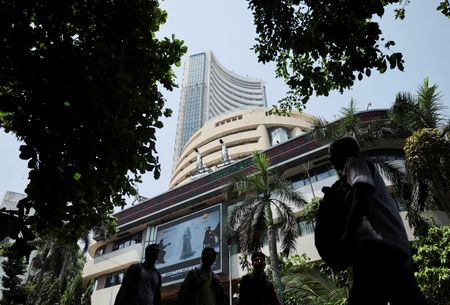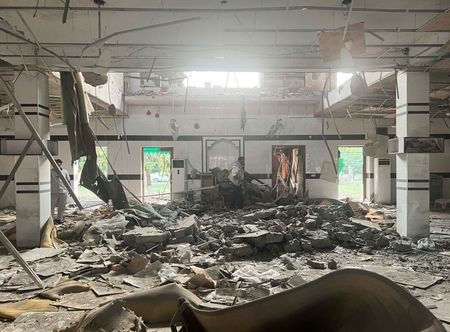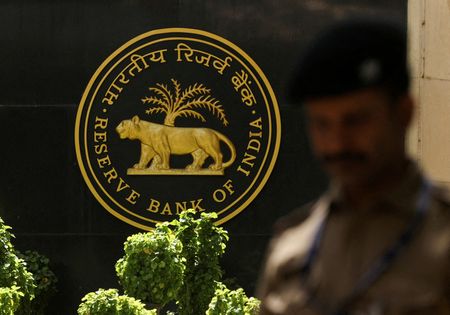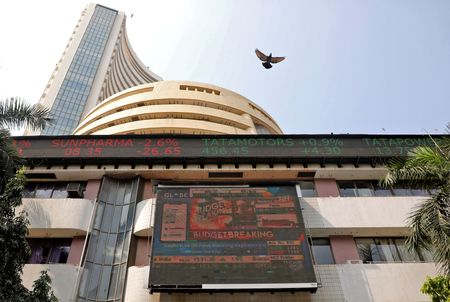By Bharath Rajeswaran and Vivek Kumar M
(Reuters) – India’s equity benchmarks ended little changed on Wednesday, coming off early losses, as rising geopolitical tension between India and Pakistan offset expectations of easing global trade tensions.
India attacked Pakistan and Pakistani Kashmir on Wednesday and Pakistan said it had shot down five Indian fighter jets in the worst fighting in more than two decades between the nuclear-armed enemies.
India said it struck nine Pakistani “terrorist infrastructure” sites, some of them linked to an attack by Islamist militants on Hindu tourists that killed 26 people in Indian Kashmir last month.
The benchmark Nifty 50 and Sensex closed 0.1% higher each at 24,414.4 and 80,746.78, respectively, on the day. The 50-stock index had opened 0.6% lower, while the Sensex had slipped 0.9% at open.
Eleven of the 13 major sectors logged gains. The broader small-caps and mid-caps added 1.4% and 1.6% on the day, respectively.
Volatility in Indian shares, which has risen in eight out of the 10 trading sessions since the Kashmir attack, was hovering near a three-week high.
“Investors were taking short positions in the market in anticipation of an Indian retaliation. Now that the news is out, they are covering those positions,” said Dharmesh Kant, head of equity research at Cholamandalam Securities.
India’s top two stock exchanges, the National Stock Exchange and the BSE temporarily restricted access to their websites for overseas users, Reuters reported, citing sources.
However, the ability of overseas investors to trade on Indian markets remained unaffected.
Defence stocks ended 1% lower after a volatile session.
Automobiles and textiles jumped on prospects of export growth after India clinched a long-coveted free trade deal with the UK.
Tata Motors rose 5% as the trade deal with Britain is seen benefitting the auto maker’s UK-subsidiary JLR. Shareholders nod to split the company into two listed firms also helped.
Investors are waiting for the U.S. Federal Reserve’s policy decision and commentary, which will be crucial for foreign fund flows into emerging markets like India.
(Reporting by Bharath Rajeswaran in Bengaluru; Editing by Sumana Nandy, Sherry Jacob-Phillips, Savio D’Souza and Mrigank Dhaniwala)










